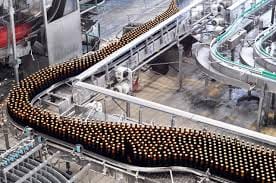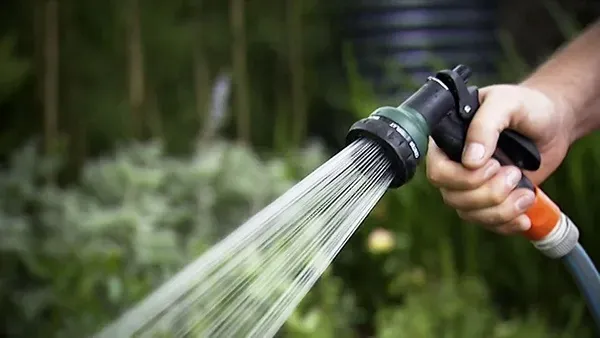Transforming Water Management in Soft Drink Manufacturing: Strategies for Effective Recycling
Water plays a crucial role in the production of soft drinks, impacting everything from beverage formulation to machinery maintenance. As environmental concerns about water usage become more pressing, the soft drink industry faces growing pressure to minimise its water footprint. Embracing water recycling initiatives is emerging as a key strategy to address these concerns and promote sustainability. This comprehensive guide explores the significance of water recycling in the soft drink industry, current practices, and future innovations.

Why Water Recycling Matters in Soft Drink Manufacturing
Water is essential in various stages of soft drink production, including ingredient mixing, beverage formulation, and equipment cleaning. Given the large quantities of water required, recycling becomes critical for both environmental sustainability and operational efficiency.
Environmental and Economic Advantages
The environmental impact of water recycling in soft drink manufacturing is significant. Reducing reliance on external water sources can alleviate stress on local water supplies, particularly in regions experiencing water scarcity. By recycling water, companies can play a part in conserving these vital resources and supporting environmental sustainability.
Economically, water recycling can lead to substantial savings. By reusing water within production processes, companies can cut down on water procurement costs and lower expenses related to wastewater treatment. This not only improves financial performance but also contributes to long-term sustainability goals.
Regulatory Compliance and Corporate Responsibility
As regulations on water use and wastewater discharge become stricter, compliance has become increasingly important. Effective water recycling helps companies meet these regulations and avoid potential fines. Additionally, demonstrating a commitment to sustainable practices can enhance a company’s reputation and appeal to environmentally conscious consumers and stakeholders.
Existing Water Recycling Techniques in Soft Drink Manufacturing
The soft drink industry employs several methods for recycling water, each varying in complexity and efficiency. These practices range from basic recycling methods to advanced treatment technologies.
Closed-Loop Water Systems
Closed-loop water systems are designed to recirculate water within the manufacturing process, minimizing waste. In these systems, water used for cooling or cleaning is collected, treated, and reused. This approach reduces the need for fresh water and minimizes wastewater output.
For example, water used in cooling systems can be recycled after undergoing cooling and filtration processes. Similarly, water used for cleaning equipment can be treated and repurposed, effectively reducing overall water consumption and environmental impact.

On-Site Water Treatment Technologies
On-site water treatment involves using advanced technologies to purify and recycle water within the manufacturing facility. Common treatment methods include:
Filtration Systems: Techniques like microfiltration and ultrafiltration remove particulates and impurities from water, making it suitable for reuse in various production processes.
Reverse Osmosis (RO): RO technology uses a semipermeable membrane to remove dissolved contaminants and salts, producing high-quality recycled water that can be used in beverage formulation and other applications.
Advanced Oxidation Processes (AOPs): AOPs use strong oxidants to break down organic pollutants in water, making it suitable for reuse in manufacturing processes with high organic contamination.
Implementing on-site treatment technologies helps manufacturers reduce reliance on external water sources and manage wastewater more effectively.
Greywater Recycling
Greywater recycling involves reusing water that has been used for non-potable purposes, such as cooling or cleaning, rather than discharging it. This water is collected, treated, and repurposed for similar applications within the facility.
In soft drink manufacturing, greywater from equipment washing or cooling systems can be filtered and reused, thereby conserving water and reducing wastewater production. This approach is practical for reducing water consumption and supporting sustainable practices.
Process Optimization
Optimizing manufacturing processes is another way to enhance water efficiency. This includes:
Reducing Water Use: Streamlining production processes to use less water while maintaining product quality. For instance, adjusting cleaning protocols to use less water can significantly cut overall consumption.
Improving Water Efficiency: Implementing water-saving technologies and practices, such as efficient nozzles and equipment, can further reduce water waste and improve efficiency.

Emerging Trends and Innovations in Water Recycling
As the industry evolves, new strategies and technologies are emerging to improve water recycling efforts. These innovations offer exciting opportunities for further reducing water use and enhancing sustainability.
Digital Monitoring and Control Systems
Digital monitoring and control systems use sensors and data analytics to track water usage, quality, and recycling efficiency in real time. These systems provide insights into water consumption patterns and help identify areas for improvement, enabling manufacturers to optimize their water management practices.
Water Recovery from Waste Streams
Recovering water from waste streams involves capturing and treating wastewater generated during production to extract reusable water. Techniques such as evaporative recovery and distillation are used to recover water from waste streams, providing an additional source of recycled water for production processes.
Green Chemistry and Process Innovations
Green chemistry focuses on developing more sustainable manufacturing processes and reducing environmental impact. Innovations in green chemistry can lead to new materials and methods that use less water or produce less wastewater, further supporting water conservation in soft drink manufacturing.
Collaboration and Industry Initiatives
Collaboration among industry stakeholders, including manufacturers, technology providers, and regulatory bodies, is crucial for advancing water recycling efforts. Industry initiatives and partnerships promote the sharing of best practices and drive collective action to address water-related challenges and promote sustainability.
Challenges and Considerations
While water recycling offers numerous benefits, there are challenges and considerations to address:
Initial Investment Costs
The implementation of advanced water recycling technologies can require a significant initial investment. Companies need to evaluate the long-term benefits of water conservation and cost savings against the upfront costs of installation and maintenance. Financial planning is essential to ensure a positive return on investment.
Technical Complexity
Some water recycling technologies and processes are complex and require specialized knowledge. Companies must ensure they have the necessary resources and expertise to implement and manage these systems effectively. Training and technical support may be needed to ensure successful operation.
Regulatory Compliance
Compliance with regulations related to water recycling and wastewater discharge is critical. Companies must stay informed about relevant regulations and ensure their recycling practices meet legal requirements. Regular monitoring and reporting are essential for maintaining compliance and avoiding potential penalties.
Conclusion
Water recycling is a vital strategy for achieving sustainability in the soft drink manufacturing industry. By adopting effective recycling practices, leveraging advanced technologies, and optimizing production processes, manufacturers can significantly reduce their water footprint and contribute to environmental conservation. Continued innovation and collaboration will play a key role in shaping thefuture of water management in soft drink production.
For manufacturers and industry professionals, embracing water recycling and sustainability initiatives is not only a responsible approach but also a strategic investment in the future of the industry. Through dedication and innovation, the soft drink industry can set a benchmark in sustainable water management and serve as a model for other sectors.